Black Sails is a brand new show due to premiere in January on Starz. It features cutthroat pirates battling for power over an island… I don’t think I’m doing it justice. But that’s ok, because I was at the roundtable interviews, so you can hear what was said for yourself. Erm.. you can read the transcription, anyway. I promise I won’t leave out a single word! Click here to jump to the interview with the creators. Click here to jump to the interview with the cast.

Creators: Jon Steinberg and Robert Levine
Question: What inspired you to make a show about pirates?
Steinberg: I think we were looking for something to do together and it had always been something I’ve kind of been noodling- how to crack a pirate show. I just couldn’t crack it. Robert kind of had the idea, what if it’s a little bit historical and a little bit based on Treasure Island and it all just fell into place from there. And the more we read about it- the actual world. You know, when you get past the movies, and you get past Errol Flynn, and frankly when you get past Treasure Island and you get into the historical reality, it’s so interesting and so dense and it just so desperately wanted to be a show. Especially now that on pay-cable you can do that. You can tell a story about a world that’s interesting without there needing to be ghosts in it. Or without there needing to be- whatever- just because it’s interesting. So from there, the process with [Michael] Bay and Platinum Dunes was pretty smooth. You know, they heard one three-minute pitch and they were on board. And then Starz was kind of the same way. I think they heard what we were talking about in terms of wanting to build characters that feel human and feel real and gritty. And they knew what Michael brings to something like that. That the combination of those two things- of doing a great big action show that hopefully lives up to Michael’s brand, along with this subtlety I guess. The character-
Levine: A dense, long-form story with great characters and great turns. The kind of thing that an audience that shows up for pay-cable expects nowadays. In this landscape where there’s just way too much good TV. Basically we have the right partners to do both. It’s been great. I mean I think we feel really excited about where it’s gotten to, and hopefully it can keep going.
Question: Did you always envision it as a pay-cable show as opposed to a network show?
Steinberg: Yeah, we both come from network. And there are certain things you can do on network you can’t do on pay-cable, but there’s a lot you can do on pay-cable now that you can’t do anywhere else. Features included. It’s its own medium a little bit. And I think we knew right away what we wanted it to be. What we wanted it to feel like. You know, we wanted it to feel like you were seeing this world as it was. Not interpreted, not sort of- and that’s not to say that we feel like we’re trying to make a documentary, or we’re trying to recreate history for its own sake. We just wanted it to feel like it could have been there. That what you’re watching feels like it has an air of truth to it. It’s really the only place you can do it is premium cable and there’s really only two or three places within premium cable you could do something of this size. And we just found the sweet spot with Starz.
Levine: Starz have been absolutely committed since the beginning to deliver the show we pitched them on both the character front, the drama front, and the action and the scope. And we’ve never worked on anything this big. And when we showed up on the set, it was jaw dropping. It’s enormous. We built the whole town, the whole beach, and two full-scale pirate ships with the rigging and the sails and everything. And it’s completely immersive. You couldn’t ask for more. And that to them- to us it’s just a demonstration that they want this to be as great as, I think, everyone who wants a great pirate show to be.
Question: Since this show is on such a large scale, what was the most difficult aspect of production?
Steinberg: I think as a global issue, we’re trying to produce the Bahamas in 1715 in South Africa. So, you know, visual effects are going to be a component of that. I think that specifically the most complicated part is- you know, the ships are hard. It’s hard to shoot something that big because the bar is so high. Everybody’s paid nine dollars and seen the three million dollar version of this, and somehow we gotta figure out how to live up to that. And so it’s a process of us figuring out how to make these ships feel real. How to make ’em feel like they’re not platforms or stages. They’re in constant movement. They’re unstable. They make noises. It’s sort of this animal that they’re riding through the water.
Levine: You can remove water as an element, which is the most difficult thing about it. But then you still have wind. And I think that’s when we realized when you drop these sails, that are full sails on this ship, it’s like, they’re gonna catch the wind. And so we had to be careful about the conditions under which we shot the boats. It’s a constant challenge to deliver on something that’s not there. Make it feel like it is.
Question: How much of the stunts do the cast members get to do?
Steinberg: A lot, I think. I mean, you never want to put anybody in the position where they’re not going to be safe. But I think we got so lucky with the cast. Everybody is- they want to do it. Which isn’t always a given, but they’re into it. They’re excited about it. And they’re excited about their characters. And I think once that happens, everybody wants to- they want to experience the danger they’re experiencing. They want to be- they want to do it. So, as much as is possible, it’s all them.
Levine: We want to tell a story, too, where the camera is over the shoulder of these people. It’s right in it with them. To us that makes it feel less like a period piece and more like something that’s immediate. And that means that when you do action and when you do fights, and then something else is that- that I think Michael expects- is that it feel real, and it feel gritty, and it feel visceral. And so, we really needed the cast to be prepared to do that. So they went to- they basically went to pirate camp. For two or three weeks before we started shooting. Both to get in shape, but also to get familiar with a sword. And to get familiar with how to punch-
Steinberg: With a ship.
Levine: And yeah, how to handle yourself on a boat. So when the time comes, they can make it look real.
Question: So, like real pirates, those are like raw, bad dudes. If this TV show had a rating would it be R? Would it be PG-13?
Steinberg: I don’t know. It’s definitely not PG-13.
Levine: It’s a hard R.
Steinberg: Yeah, I think it’s pretty hard R. I mean, I don’t think we ever want to do be doing anything for its own sake. I don’t think it’s gratuitous. But we do want it to feel real. We want it to feel- you’ve seen pirates take a ship before. It’s almost always very sanitized. You know, you see the fight, but you don’t see the aftermath. You don’t see that it’s scary. These guys were probably drinking before they went over the side. That the ones that were going over the first time were terrified. They had to have been. And I think in order to sell that, you have to make it visceral. You know, the violence is a part of that. I think the sex is a part of it, too. Part of the story we’re telling is that this is a place on the fringes of civilization.
Levine: It’s lawless.
Steinberg: Yeah. And it’s also- it’s not even so much that it’s lawless, it’s that the social norms are breaking down.
Levine: Yeah.
Steinberg: And gender roles are breaking down. And expectations are breaking down. And I think in order to be able to show that, you need to see what that does to people. And what license does to them in that environment.
Levine: Yeah, even without law, there’s still something regulating keeping a community working. So, for us it was kind of finding out the specific ways in which your grievances against you are returned in kind. And that means- for some of our characters- that means some pretty harsh experiences. And for a couple of them, that’s what the first season is. It’s a descent. And then we get to sort of watch them claw their way back. Because the other side of that coin on this island is that, things can change very fast. And if you want to take what’s yours, you can do it if you’re willing to go to certain lengths. It’s not an easy journey for anyone.
Question: What was the most interesting fact that you found during research?
Levine: I think, the most interesting thing to me was understanding where they came from. My understanding from the movies I’d seen is that pirates are adventurers. Or pirates are villains. And that the people they’re hunting are the innocents. The thing that was most interesting to me was how brutal life was on the merchant ships. You know, on the naval ships- the civilized English ships- were really violent, and really cruel, and really arbitrary. And it starts to make a lot more sense when you think about it that way that for a lot of these people, they were abused, they weren’t paid. They were kidnapped and thrown onto ships to be labor for merchant ships and for the navy serially. You’d get on a ship and spend two years at sea and not get paid. And then get off the ship and before your family knows what’s happened to you, you’re thrown onto another one. And now suddenly being a pirate makes a lot more sense. Like, in a way these are the people who are the most rational. In terms of responding to a system that had really become oppressive to people who were on the lower rungs of it. And that to me was a part of the story I’d never heard before.
Steinberg: Yeah, what you start to recognize is that once they made the choice to become pirates, they were experimenting with democracy fifty or sixty years before the American Revolution. They were talking about making laws that protected the common- the sort of rank and file- from an abusive monarch, basically. So I think for us, right away, that was both surprising and also kind of surprising that no one had ever tried to make a story out of it before. And then we found the perfect partners to do that with.
Question: You mentioned the Michael Bay brand earlier. What would you describe his day-to-day involvement as? And has anything surprised you about working with him?
Steinberg: He’s been incredibly supportive. I think the stuff that at the outset we knew would be really important to him- the look of the show, the feel of the show, the scope of the show, and just the quality of it- to make sure that it felt like… You know, when we say it lives up to the brand- there’s never been any pressure from him to make it his show. Or to write the story for us. Michael and Brad and Drew have been really supportive about letting us tell the story we want to tell. I think for Michael it’s about this has to look great. You know, it can’t look schlocky. It can’t look like we cut corners.
Levine: So you get the best DP you can possibly get. You get an amazing production designer. You get an amazing color timest- colorist. Every step of the way you’re getting the best in the business because they want to be in business with Michael.
Steinberg: It’s so rare, especially on TV- even in premium cable- to be in an environment where both the people paying for the show and your creative partners are completely committed to the show looking great. And everything else falls after that. Looking great and working as a story. And I think we found that.
Cast: Mark Ryan, Zach McGowan, and Jessica Parker Kennedy
Question: Can you tell us about “pirate camp”?
Kennedy: Pirate boot camp.
Ryan: Pirate boot camp. I didn’t do pirate boot camp.
Kennedy: I also didn’t do it.
Ryan: I’m at an age where they go, no we don’t want to kill him outright before he’s actually gotten to shoot. So I was excused. Although you [McGowan] did pirate boot camp.
McGowan: I did. I did pirate camp. Pirate camp was awesome. It was really fun. It took place in Cape Town. In and around the studio. And the minute we got there, basically, the first thing that happened was your stunt assessment and your physical assessment. And those were really interesting because they’re basically assessing how much you’re going to be able to do and how much the double’s are going to need to do. And I was lucky enough to get assessed pretty well. And then we kind of moved on from that to training regiment and the actual stunt training and the fight choreography training. And the sword-work which was awesome. Then we started working with the looks. What they’re going to be doing with your hair and your make-up. And then we went out sailing. We went sailing in a boat a couple times, which was really cool. We learned to tie knots and some of the stuff like that out on the boats which was really cool. And then from there it just turned into absolute like, let’s get into the best shape that any person’s ever been in. And, uh, we worked on that for a while. And then we continued to work on our accents and whatnot. So really what it was, was it was just a great month to play and learn and define what this was gonna be and what you were going to be doing the rest of the year. So, it was a blast.
Question: What is it you’ve already filmed that you’re most excited for viewers to see?
McGowan: Black Sails
[laughter]
Kennedy: That’s a really hard question.
Ryan: The fun thing about the show is it’s not all just about blowing ships up and running around. There’s a lot of serious emotional drama. What I think glues this show together- set within this world that’s been created- is the dynamic between the characters. The relationships. The political relationships. Between the captains, the quartermasters, and the people who are financing this. The characters themselves are very engaging. And at times, literally at each other’s throats. So some of the bigger drama scenes I think are riveting. I was talking to some of the producers, they’ve said there’s one episode where there’s actually very little actual action. It’s all interplay dynamics between the characters. Verbally. And the tension between the characters. And they said, but it’s riveting. Because they’ve set it up- because of this clash of personalities and desires and, you know, dreams and political ambitions, the drama’s still riveting. Even though we’re not necessarily blowing up ships every two minutes. And that, I think, is going to be the revelation for everybody.
Question: What is your favorite part of each of your characters? Like, what do you enjoy most about it?
McGowan: Personally, I just think the philosophy of how Charles Vane sees the world is what I like most about him. My father used to say to me when I was a kid that if you take what you’re given, then you deserve what you get. And Charles Vane does not take what he’s given, he takes what he wants. And that’s the thing that I like most about him.
Kennedy: I think with Max, I love the way that she slips in between vulnerability and strength. I mean, she’s really a girl who goes through a tremendous amount of big, big changes in the first season, and spends a lot of time defending herself, and she’s in a very precarious place. She has to figure out, how am I going to make this situation work for me. And I like that she is constantly having to put on a face to try and hide these things that are happening to her. I love her strength in that. And I love when I can find those moments where it’s like, God, I just wanna break down and cry here, and I’m not gonna do that. So I like the struggle of that.
Ryan: Gates is an absolute gift to any actor. To be given this broad canvas to paint on this character. He gets to be funny. He gets to be manipulative. He gets to be angry. He gets to be violent. He gets to be all of these different aspects of character, which is gratifying to play. You’re not just singing one song emotionally. You’re not just playing one avenue or aspect of a personality. Gates plays them all. So for me it was an absolute joy. Each episode has something that was different- had not been revealed previously. And the humor and the camaraderie between the characters. And the dynamic gave me a chance to play all these different aspects. So for me it was an absolute pleasure.
Question: For Mark. Since you didn’t go to pirate camp, how did you prepare for your role?
Ryan: I’ve been in the sword and action side of things for about thirty years. You know I’ve choreographed big films myself. Like King Arthur. I trained Keira Knightley. I trained Mads Mikkleson. I’ve trained Stellan Skarsgard. The sword side of it- the action side of it- I knew very well. But, because when you get to, you know, a certain age, they’re worried about you having a heart attack. Keeling over. It’s time to hand over the sword swinging and all of that to these guys. [grabs McGowan’s arm] Mr. Gates is now allowed to sit back as the elder statesman of the pirates and let them go hatcheting people to smithereens and I get to watch. You know what I mean? I do get into a little bit of action, but I’ve been doing it a long time. I’ve done lots of strange, weird sports- jumping out of airplanes and scuba diving and chasing things about. So I’ve done a lot of physical things, so I was happy to sit back and let the young bucks here- my young comrade here- throw himself into the stabbing knife.
McGowan: Well, he’s being nice. You should see him- well, you’ll see it when it comes out. He’s quite capable with a sword and doesn’t need much training. In fact, he could have been teaching pirate camp.
[Ryan laughs]
Kennedy: Very true. Very true.
Ryan: [to McGowan] Thank you.
Question: How did you find your pirate voice for Black Sails?
McGowan: I’ve been working on it my entire life and I had it ready for the moment. And I’ve been waiting for an opportunity to do what I’m getting to do on this show, and I’ve been working on it for my entire life. Literally. And I think when I was a kid- I mean, when I decided that I was gonna be an actor years and years ago- I was like, it’s going to be very important to do different accents and I should start working on this right now. And that was like, second grade, so… There you go.
Kennedy: Mine- I don’t play a pirate, but general pirate voice- I specifically play a woman who is French. So I did an enormous amount of dialect training with a coach here and then I coached in South Africa. I’m Canadian, so growing up in Canada- ’cause our country’s bilingual- I went to a French immersion school growing up, so I’m able to speak French- not as well as I used to be, though. So I think it was easier for me to slide into that. But to get the proper Parisian sound, and then I’m surrounded by people with British accents all the time. So I had to try to make that work. It took a little while to figure out exactly where it needed to fit. And then I think we have something that works really well now, that’s French but still- people can understand what I’m saying. Which is obviously the most important.
Ryan: During the first read-through, because I’ve done a lot of musical stuff, I like to hear the tonal range of all the voices- how people are going to present their characters. And I actually had not really got much of an idea about it. I wanted to hear what everybody else was going to do, and where it was gonna place. And then I’d place it somewhere in there. Neil had actually come to me- because I’ve lived in New York, and Montreal, and Dublin, and all over the place, I have a very peculiar, but specific Yorkshire accent. And I didn’t know what I was gonna do, but he said keep your own accent. So what I did was basically use most of my own voice and just brought it down- [talking in a low grumble] brought it down here, when I needed to be quiet. To give it a bit of an edge.
Kennedy: He pirated it up.
Ryan: Very piratey. But I wanted to find this tonal place where it fit within the range of voices that we had in the show. So that it would plug in. And not sound like we were all doing the same thing.
McGowan: I think that’s actually a really important point. The idea of- you know, we do read-throughs as a cast and I think it’s a really important thing. And not all shows do that. But to really see what everyone’s gonna do, it really helps with that. And you get a sense of whether you’re being to broad for the show, or whether the tone of it’s all gonna work. Just by sitting there and going, okay. And you know what? We did the first read-through and we all came out and we were like, this is going to be good! This gonna be a really good show.
Kennedy: [said at same time as McGowan] This is going to be good! We were so excited!
McGowan: And like, did you see? Did you just see that? We’re all like, oh my God! This is good! ‘Cause it’s good when you read it, but then when you see it come alive. ‘Cause the read-through is just-
Kennedy: It did. Every character felt really specific right from the first read through. Which was like, oh, there’s color in this.
Question: For Zach. You’ve been on Shameless for several seasons, and now this is a change of pace, how was that adjustment for you? Were you excited?
McGowan: I think as actors, we’re all excited to be working. And I’m no exception. It’s been a long road for me. So for me, when I’m working, it’s a happy thing. Transitioning from Shameless to Black Sails was crazy. I mean, I was in Chicago putting myself on tape for this project, shooting Shameless, then ended up coming to Africa like three days later. I had no time. And then I went home and came here, but it’s been a dream come true getting this role. ‘Cause, to be honest, this has been the kind of thing that I’ve been- like I said- I’ve been waiting to play this kind of role for a long time and I have never been given the opportunity. And as amazing as my experience on other shows has been, there’s just something very unique about Black Sails. And I’m really excited to see episode two, because I just got to see one and I’m dying to see two.
Kennedy: I feel the same way!
Question: The creators talked about wanting to have historically accurate pirates. What surprised you when you started learning the real deal with pirates?
Ryan: I think we all went away and did our own personal research. I mean, I think I already knew a lot about the history of it. I’ve read several books about it for various reasons. The part that I wanted to bring to the character- which they allowed me to do- was the esoteric linkages between privateers, pirates, and the secret Masonic groups like the Knights Templar. So that’s why I’ve got this tattoo on the back of my head and “hold fast” on my hands, and all that kind of stuff. That was an element I wanted to bring to the character, which also they wanted to bring into the show. I go, or the character Gates goes to the Abiatha shrine when he’s talking to (Musiah?) and he pays reverence to that shrine, which makes that spiritual belief system. And I thought that was a) very smart of them to bring in those other multicultural aspects to it, but also to show the characters as they would have been, interacting in those different ways. So I thought that was- again- just a great historical thing just to drop into it like a little gem. Just to go, oh, and by the way, not only have we got this, but there’s that, as well. And it’s great. They’ve done a great job with their historicalness. They really have.
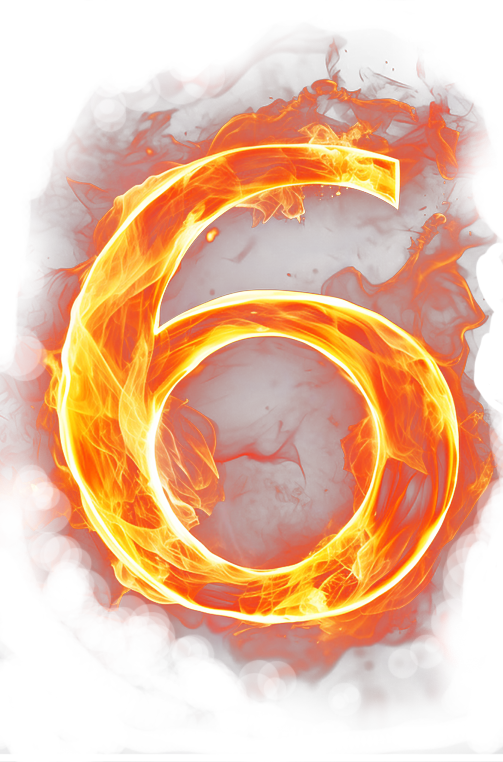
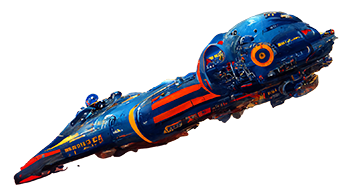
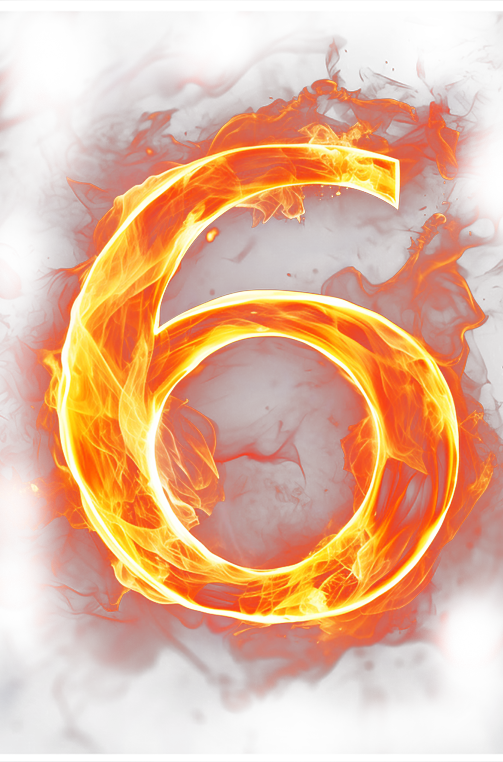
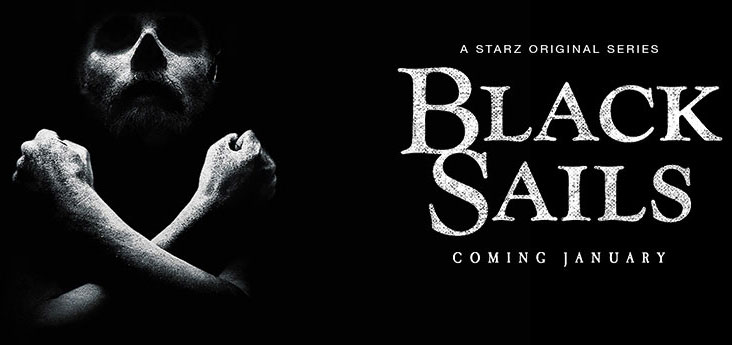



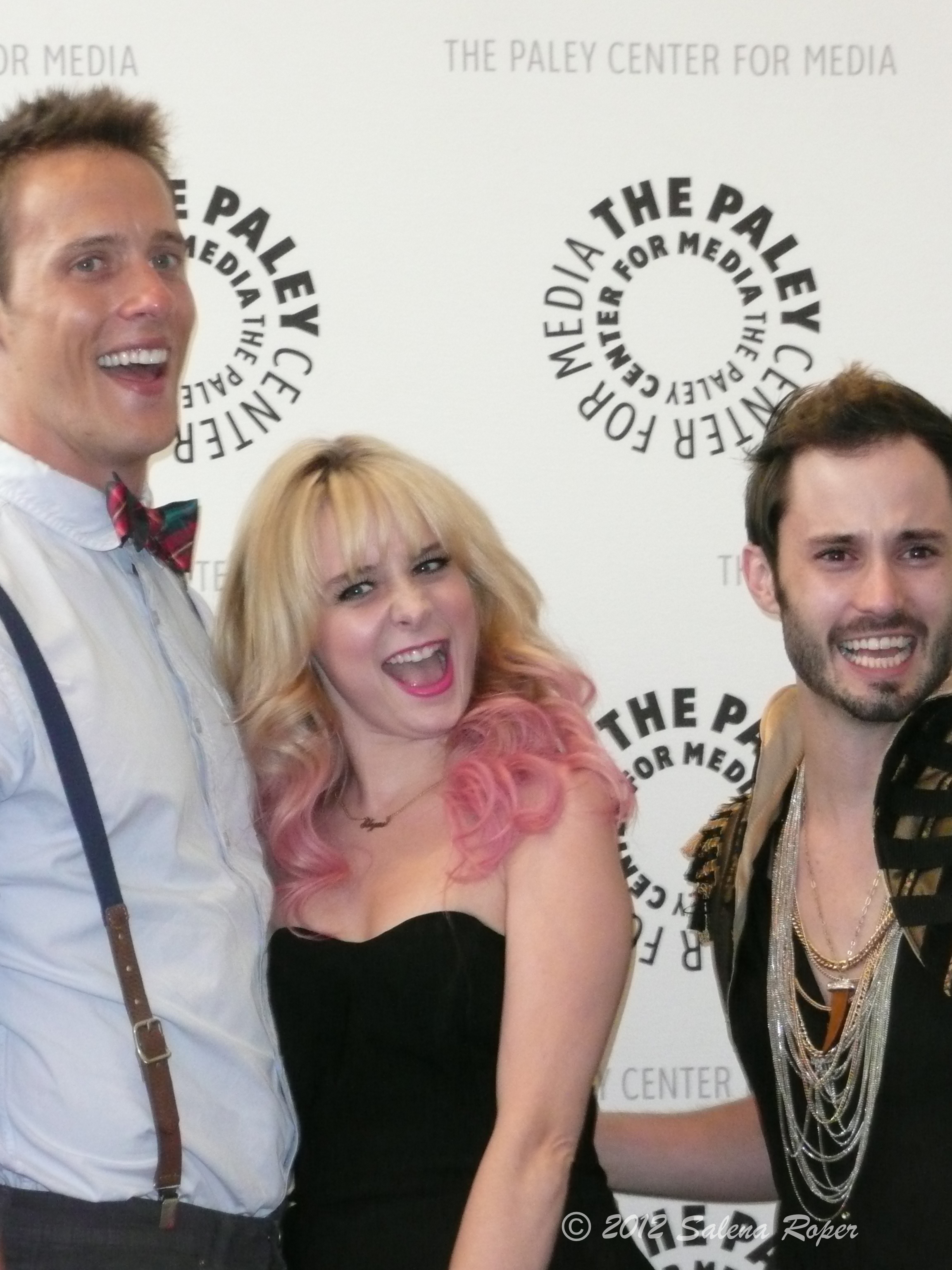




Trackbacks/Pingbacks